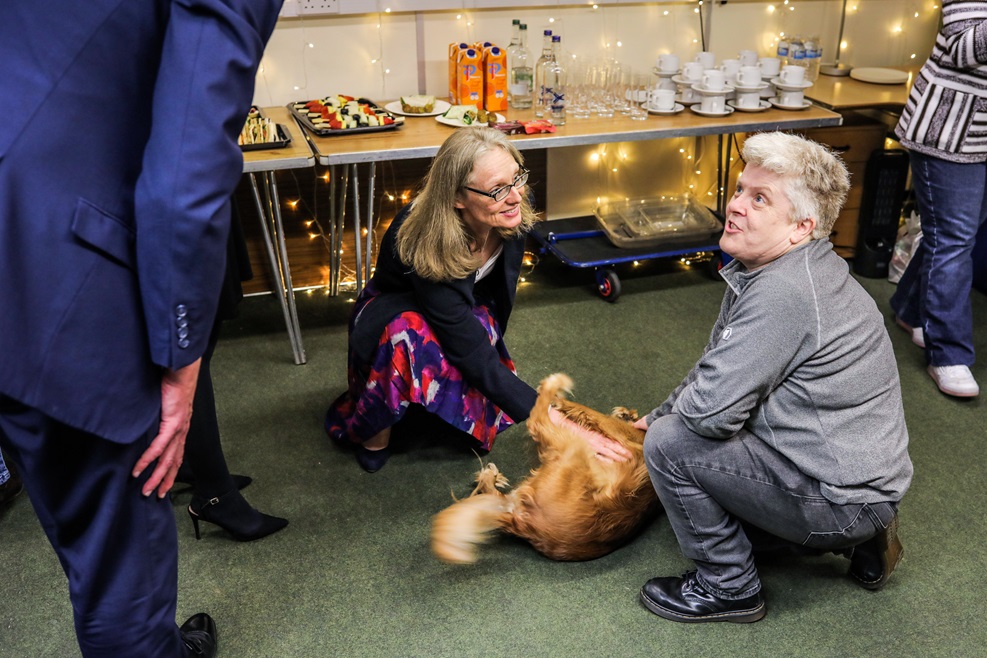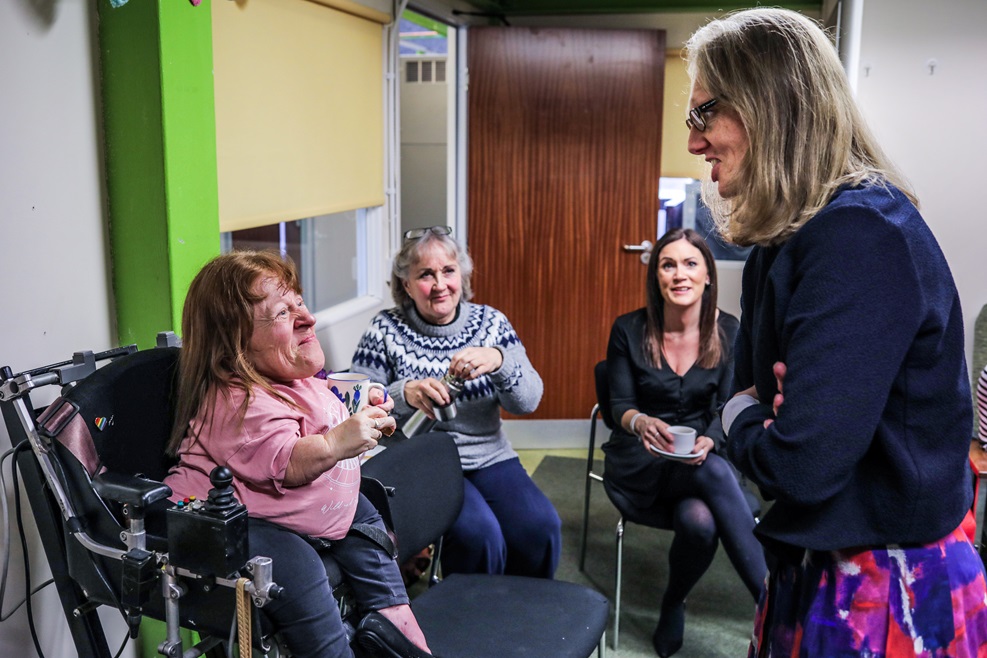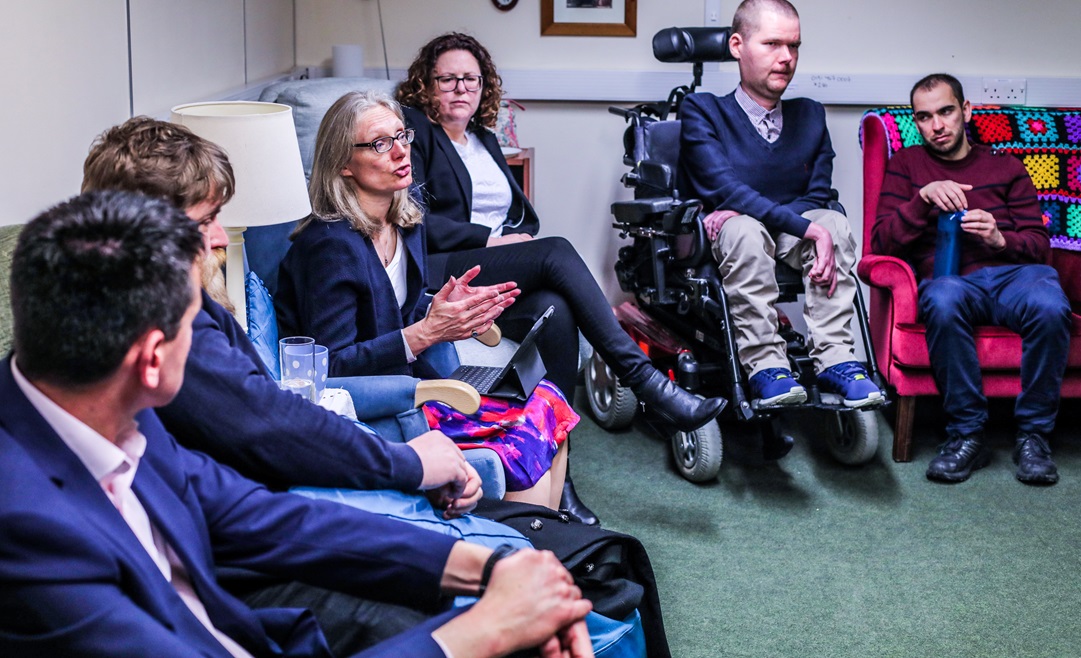I have visited Newcastle many times over the years for work and pleasure, including walking Hadrian’s Wall. My most recent visit at the end of March showed yet another angle to this fascinating and vibrant city. On the first day, I visited the Bank’s team at Accenture’s offices just outside the centre of Newcastle, where the staff are busy helping us to design and build a renewed Real Time Gross Settlement service. This exciting transformation programme will strengthen resilience and enhance competition and innovation in the payments landscape. RTGS settles an average of £750billion a day, and forms a large part of my day job. If you would like to know more about this and other payment systems, you can read more on our payment and settlement webpage.
The second day was completely different, working with the Bank’s Outreach and Education team; I gave a school talk and hosted a Community Forum. I substituted my usual morning cycle to work with a stroll along the Newcastle Quayside and views of the iconic bridges before heading to Gateshead to deliver a Bank Ambassador school talk at Cedars Academy. Cedars is a special educational needs school for children aged 4-16, offering a varied curriculum to meet the abilities, needs and ages of its students.
I was treated to a tour of the school, including the new sports hall built after enormous fundraising efforts. The classes were small and there was a lot of outdoor space, cookery lessons and some therapeutic immersion rooms. I also met Heidi the therapy dog, who greeted me with a rather muddy favourite toy. There was little time to stay with Heidi, or to sample the chocolate eggs being created, as I had a very enthusiastic audience awaiting.
I gave presentation about the role of the Bank, covering at a high level monetary and financial stability but with a focus on some of my previous roles in relation to banknotes and gold. There were some fantastic questions, and great engagement but all too soon it was time for sports and classes for the pupils and a trip back across the river for me.
I headed to the Dene Centre, the offices of Disability North, to join the Bank team in leading a Community Forum. The Outreach and Education teamwork with charities across the UK to organise Community Forums – a chance to hear first-hand from people who run, work in, and are supported by charitable organisations. Disability North offers a wide range of services to support people with disabilities and long-term health conditions and their families. Their mission is to promote choice, control and inclusion for disabled people across the North East and North Cumbria.
We were welcomed into the centre by Vici Richardson, Chief Executive. It was a very welcoming space, shared with some other charities, and with a small gym for offering specialised 1-to-1 support. There was also a large showroom with ability aids and equipment, to try before you buy. The Dene Centre is real Aladdin’s cave of facilities, hidden away along a side street. And impressively many of the services had remained running during lockdown, a time when support was more crucial than ever.
We had sandwiches and an informal chat with some of the staff and people supported by the charity. We were also joined by (though didn’t share our lunch with!) Toby the office dog. He was certainly the centre of attention, and while not a formal therapy dog like Heidi, he also plays an important role in providing comfort to visitors.
After lunch, we had a roundtable discussion about how the cost of living crisis was impacting both the charity and the people they support. We are very aware of how the current rate of high inflation is impacting people across the UK, but what became very clear is that it could be even more acute for people with disabilities, many of whom are on a fixed income and have fewer options to deal with increasing prices.
Many of us are deploying a range of tactics to try to reduce the impact of the cost of living crisis. This includes turning off the heating to reduce utility bills, cutting down on driving to reduce petrol costs, and shopping around for better deals or switching to cheaper supermarkets has become common. People with certain disabilities often do not have the same choices.
The extra ‘tax’, as one attendee called it, for disabled people often meant they had to pay higher prices and additional costs for essential items as they couldn’t rely on public transport or needed to have their supermarket shopping delivered. And for some and their families, the cold would intensify their symptoms. In some cases, people were even having to cut back on their prescriptions.
The charity itself was also trying to manage increasing energy costs on very tight budgets, offering a warm space to those who needed it during the winter months.
We also discussed the employment opportunities available for people with disabilities and the need for employers to gain a greater understanding of the issues and to be more flexible. With record low levels of unemployment, it was still difficult for people with a disability to access employment. Attendees felt that lack of information and fear of making a mistake deterred employers from the benefits from a valuable skill set. And there was one case where after 9 months a successful candidate was still unable to take up their new role as the company was not ready. This is one of the areas where the Business Disability Forum, where I am a Director, can provide a lot of support to businesses.
I am extremely grateful to the staff and pupils at Cedars Academy and Vici Richardson and the staff and guests at Disability North for their time and insights. Our Outreach programme aims to help us better understand the lived experiences of the people we serve across the UK, which helps to better inform the decisions we take as the Central Bank: it certainly worked for me.






